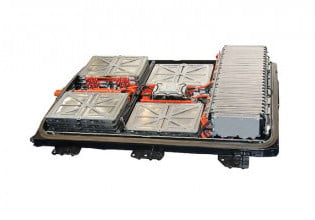Fallout over Recalls of Sony Li-Ion Batteries Continues; Group Forms to Develop Safety Standards
American National Standards Institute (ANSI) member and accredited standards developer IPC – Association Connecting Electronics Industries (IPC) announced that it will move to develop safety standards for lithium-ion batteries. The initiative will be led by IPC's OEM Critical Components Committee, which includes technical experts from ANSI members Dell Computer, Hewlett-Packard, Apple Computer, IBM, Motorola, Lucent Technologies, Intel, and Cisco Systems. The move comes as companies that use Li-Ion batteries in their computers face increased scrutiny over potential safety issues after the highly publicized stories of Dell laptops overheating and igniting into flames.
The immediate fallout centers on Sony, whose batteries were singled out by Dell in its recall of four million laptop batteries on August 14, and then by Apple's recall of 1.8 million Sony batteries on August 24. Sony has explained that its battery problems stem from small pieces of metal that were dislodged during the manufacturing process. Over time, these pieces of metal can potentially work their way through insulating material that separates the electrodes in a battery cell and causes electricity to flow uncontrolled from one electrode to another. This can produce a large amount of heat and potentially a fire.
Despite the announcement by Hewlett-Packard that it does not expect its laptops to be effected by the safety issues that have troubled Dell and Apple, Sony is admitting that the cost of the recalls will cost the company between $175 and $265 million, which is between 16 and 24% of its predicted $1.09 billion operating profit for the financial year. Sony has also announced that it has addressed the manufacturing issues which resulted in the defective batteries, and many industry analysts are predicting that the problem is of such a "one-off" nature that the company will not be adversely affected financially in the long term.
The IPC committee intends to define the necessary manufacturing and design parameters, as well as design and performance requirements, to resolve the safety issues. The group aims to have completed a comprehensive standard by July 2007. The voluntary standards are expected to be implemented by all of the participating OEMs, as well as by industry suppliers and customers.
"Standardization can and will address the issue of operation and safety called into question by the use of lithium ion batteries," said John Grosso, Chairman of the IPC OEM Critical Components Committee and Director of Supplier Engineering and Quality, Sub-tier and Critical Components, Dell Inc.






